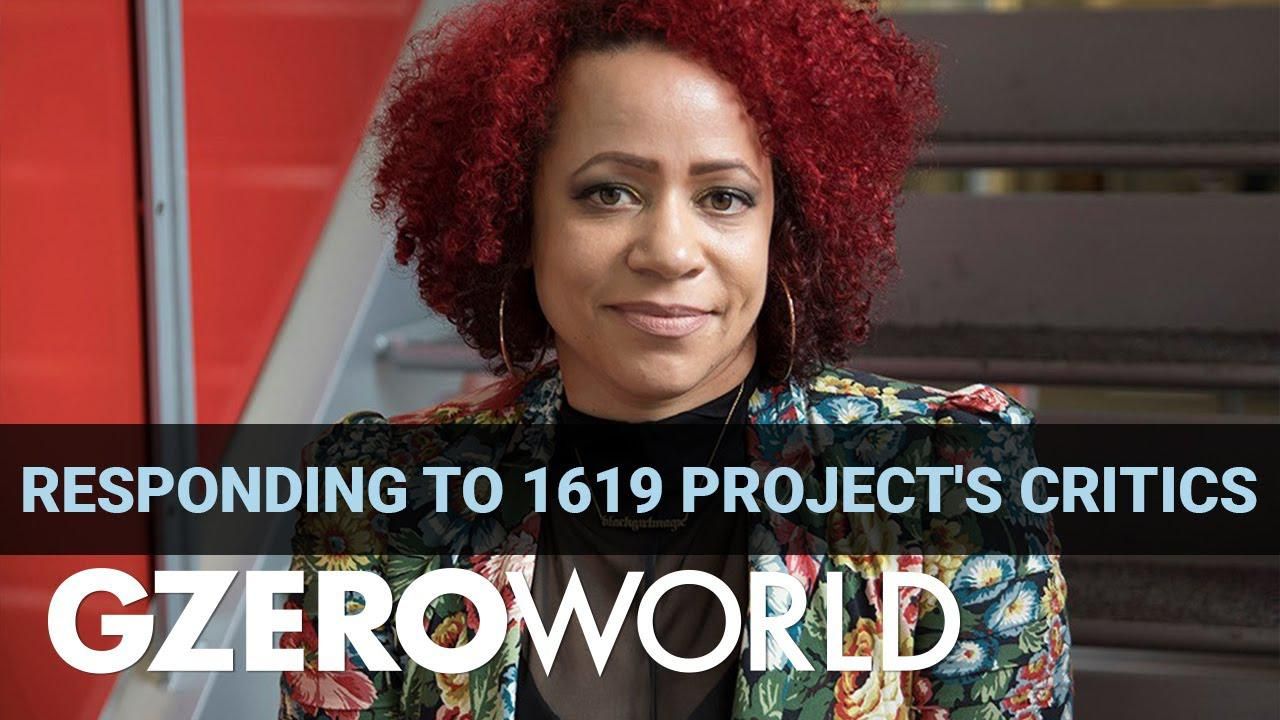GZERO World Clips
Nikole Hannah-Jones pushes back against "disqualifying" 1619 Project criticism

Nikole Hannah-Jones Pushes Back Against "Disqualifying" 1619 Project Criticism | GZERO World

Pulitzer Prize-winning New York Times journalist Nikole Hannah-Jones has often had to defend her work as the creator of the 1619 Project, a piece of modern journalism that has gained as much praise on one end of the US political spectrum as it has sparked outrage on the other.
Hannah-Jones admits some of the criticism was fair game — and that's one reason she’s just published an extended version of the project in book form, entitled The 1619 Project: A New Origin Story. But she rejects those who’ve tried to disqualify her and the project.
"People were saying these facts are wrong... [and] that this journalism needed to be discredited, and that's not normal," she explains. "And I don't agree with that type of criticism because... it's not true.”
According to Hannah-Jones, part of the problem is the mistaken perception that the 1619 Project claimed that slavery was uniquely American. It did not, she says, but did argue that the history of US slavery is quite exceptional in another way.
"There is something clearly unique about a country engaging in chattel slavery that says it was founded on ideas of individual rights and liberty. And that was not Brazil. That was not Jamaica. That was not any of the islands in the Caribbean. They didn't pretend to be a nation founded on God-given rights. We did."
Watch all of Hannah-Jones' interview with Ian Bremmer on the upcoming episode of GZERO World.
In this Quick Take, Ian Bremmer addresses the killing of Alex Pretti at a protest in Minneapolis, calling it “a tipping point” in America’s increasingly volatile politics.
Who decides the boundaries for artificial intelligence, and how do governments ensure public trust? Speaking at the 2026 World Economic Forum in Davos, Arancha González Laya, Dean of the Paris School of International Affairs and former Foreign Minister of Spain, emphasized the importance of clear regulations to maintain trust in technology.
Will AI change the balance of power in the world? At the 2026 World Economic Forum in Davos, Ian Bremmer addresses how artificial intelligence could redefine global politics, human behavior, and societal stability.
Ian Bremmer sits down with Finland’s President Alexander Stubb and the IMF’s Kristalina Georgieva on the sidelines of the World Economic Forum to discuss President Trump’s Greenland threats, the state of the global economy, and the future of the transatlantic relationship.